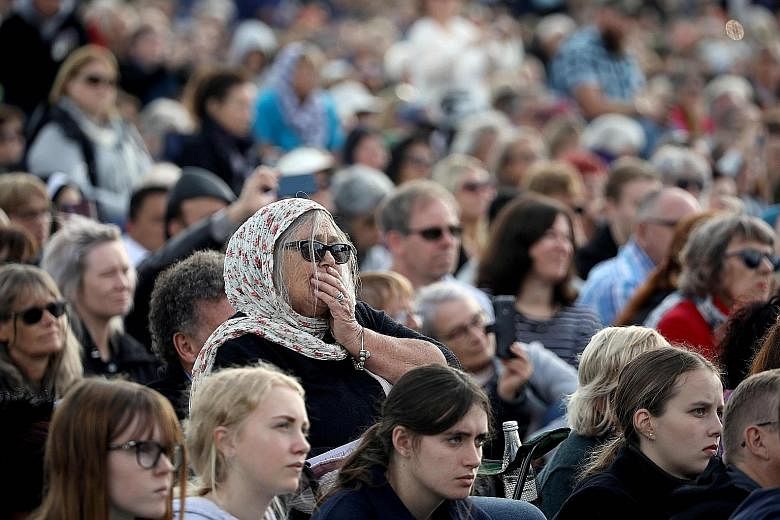The recent attacks in Christchurch, in New Zealand, and the Dutch city of Utrecht have underscored the need for people to unequivocally reject and counter extremist ideology and rhetoric, said Senior Parliamentary Secretary for Home Affairs Sun Xueling yesterday.
Such extremist statements can spread widely via social media and, if allowed to propagate, can breed hate and violence, she added.
"In Singapore, we take a firm and unforgiving stance against extremist expressions and speech, to make sure the ideologies they represent never take root. This includes working with partners such as the Religious Rehabilitation Group to refute radical religious teachings," said Ms Sun in Parliament.
She was replying to Mr Ang Wei Neng (Jurong GRC), who asked what lessons the Home Team should draw from the recent shooting incidents in Christchurch and Utrecht.
Ms Sun said there was a need for firearms controls.
A week after the March 15 Christchurch attacks, in which 50 worshippers in two mosques were killed by a shooter, New Zealand proposed new laws to ban military-style semi-automatic weapons.
The shooting incident in Utrecht took place just days after the Christchurch attacks. A gunman shot dead three people and injured five on a tram.
Ms Sun said: "We learnt our own lessons many decades ago. Today, unlawful possession of firearms is punishable with imprisonment and caning, and unlawful use is a capital offence."
She also said the authorities need to stage a swift and effective response when an attack hits, like how the New Zealand police were able to arrest the shooter within half an hour of receiving the first call.
In Singapore, the police have deployed In-Situ Reaction Teams in high human-traffic areas, such as Orchard Road and Marina Bay, to respond quickly to incidents, she said, noting that more teams will be deployed across the island this year.
Their work complements that of the police's Emergency Response Teams and Rapid Deployment Troops, who are specially trained to deal with terrorist attacks, said Ms Sun.
It is also important for the community to know how to prevent and respond to such attacks, she added.
Family members and friends need to be vigilant and report self-radicalised individuals.
Also, neighbourhoods, schools, workplaces and community organisations have worked with the Home Team and its partner agencies to prepare themselves for public incidents, she added.
Above all, the ability of the people to stand united will determine if such attacks succeed in their ultimate objectives, Ms Sun said.
"Should an attack happen here, we must likewise stand shoulder to shoulder and show the attackers that we will not be cowed, that we will not let them divide us as a people, nor turn one Singaporean against the other."


